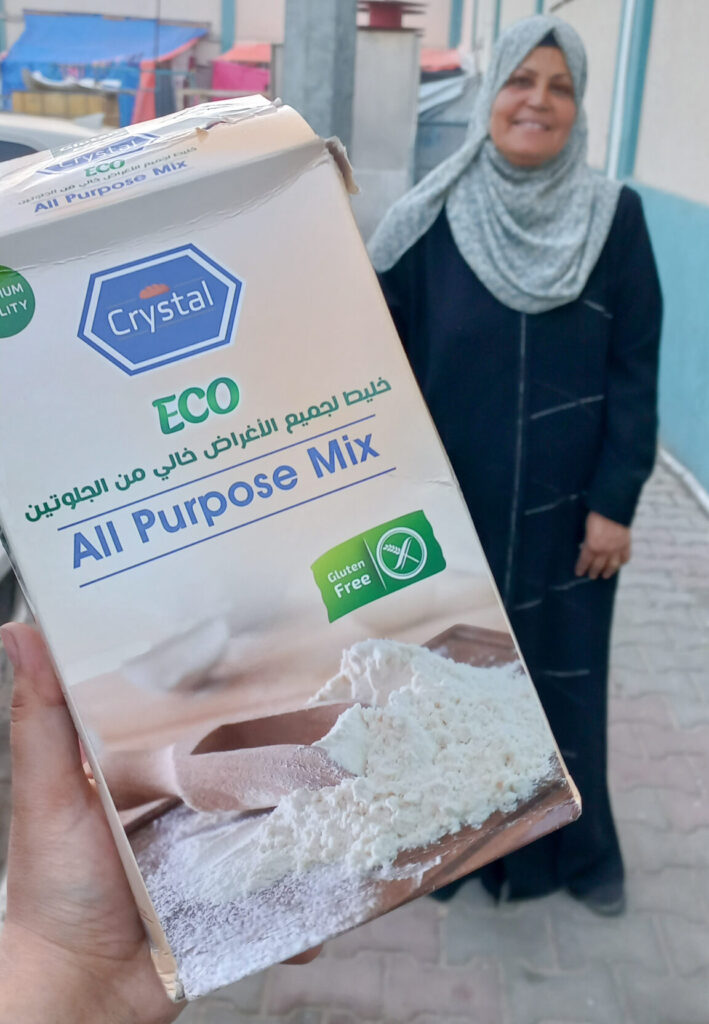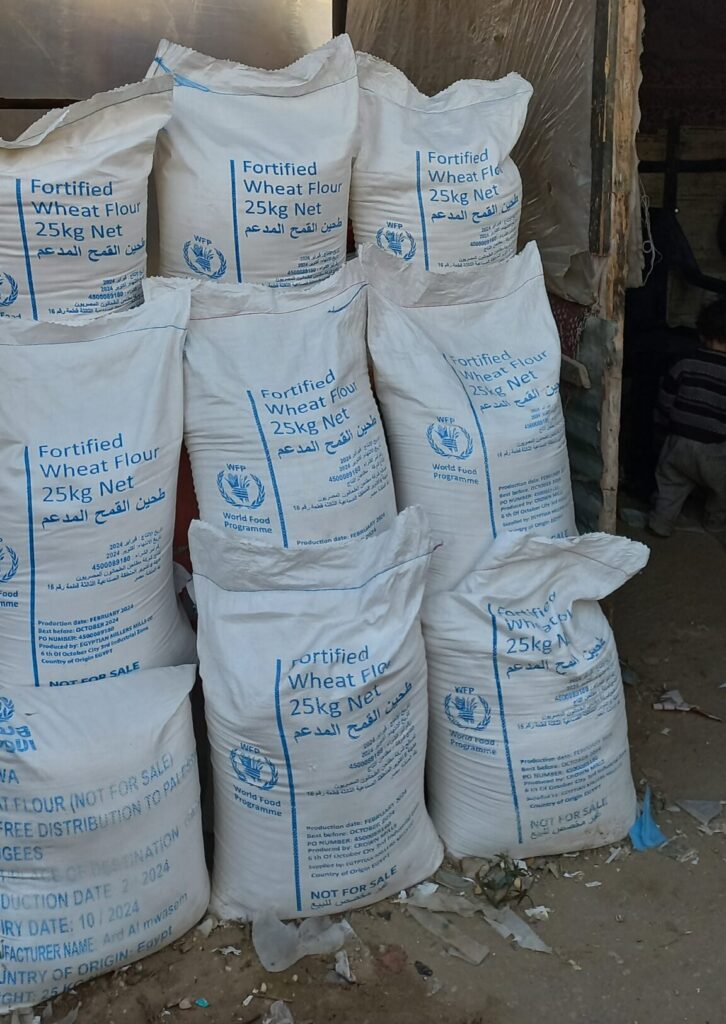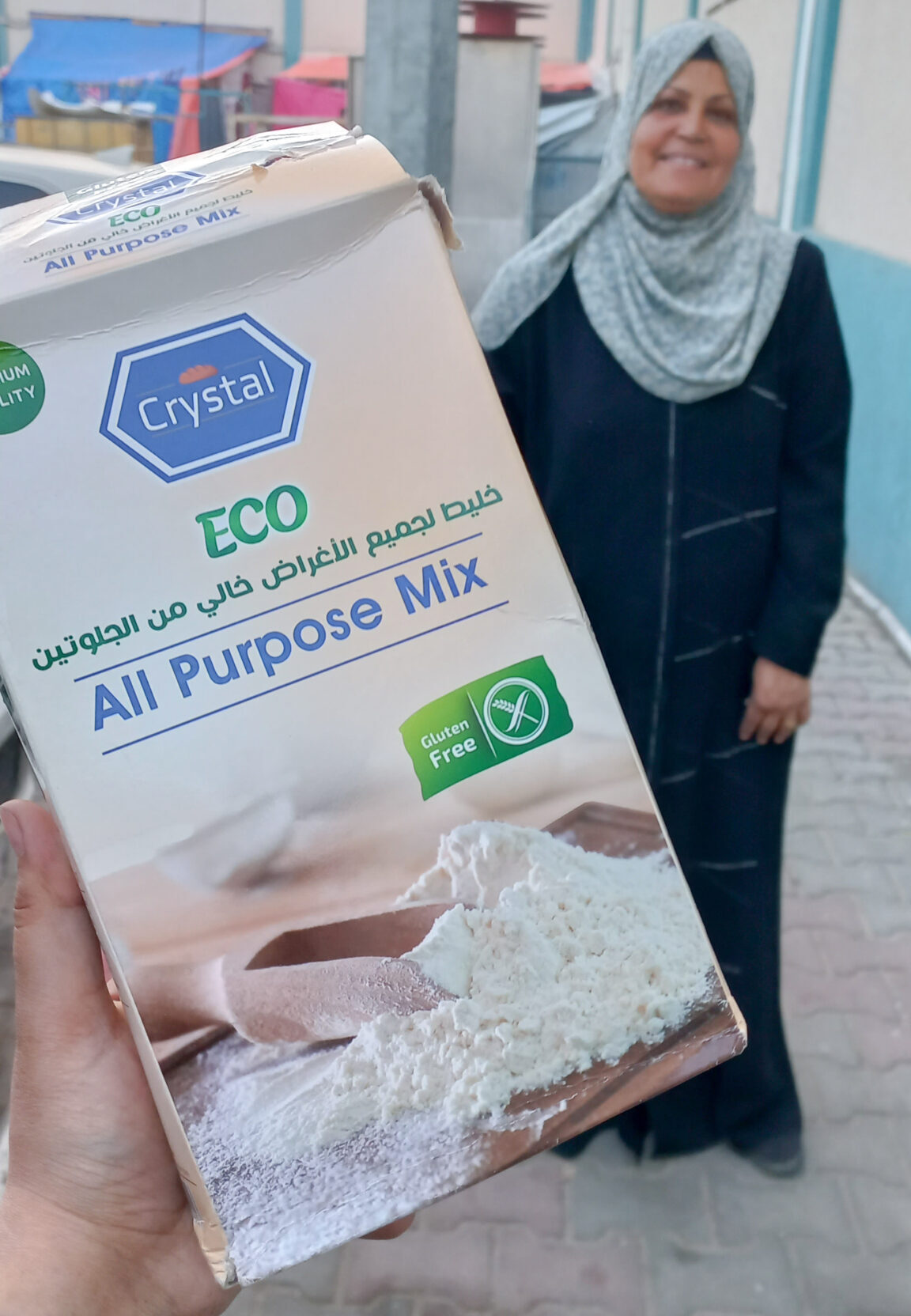I am Hadeel, an emergency nurse who has worked at Al-Shifa Medical Complex and at the Ard El Insan Charity Association. Many cases are treated at Ard El Insan including celiac disease, with a department dedicated to patients with this wheat allergy. As a nurse, and as a parent of someone with celiac disease, I can attest that since Oct. 7, 2023, the suffering has greatly increased for those who have this disease.

Celiac is an autoimmune disease in which a person’s immune system attacks the digestive system after eating anything that contains gluten. Gluten is protein found mainly in grains, such as wheat and barley, and in other types of foods.
Celiac disease causes inflammation in the small intestine. Repeated inflammation leads to intestinal damage and thus poor absorption of nutrients and malnutrition because of the body’s inability to digest and break down gluten found in wheat.
Celiac disease begins to appear as early as the age of six months when solid food is introduced to the child’s diet. In very rare cases, it can appear at an older age. The symptoms of celiac disease in general are a feeling of discomfort when eating foods containing gluten and a feeling of improvement following a diet free of it. A gluten-free diet can include fruits and vegetables, meat and fish, potatoes, rice, gluten-free flours, and most dairy products. In addition, Celiac patients should not eat bread and canned food because they contain preservatives that harm their digestive system, leading to possible hospitalization.
Symptoms of celiac disease include: abdominal pain and bloating, physical fatigue, problems with digestion, severe headaches, itchy rashes and swelling of the skin, problems in the kidneys and glands, inflammation and ulcers in the mouth, deficiency of calcium and minerals, osteoporosis, diarrhea or severe constipation, difficulty breathing, joint and muscle pain, and multiple forms of neuritis (nerve inflammation) that cannot be detected except by performing an endoscopy and taking a sample from the stomach lining.
The suffering caused by celiac disease is ongoing for many patients because it can be difficult to obtain appropriate food even during the best of times, for two reasons: first, celiac-safe foods are not available in all regions of Gaza, and second, many people do not know about this condition. But now that war has emerged, the suffering of those with celiac disease has become critical. Even the few things they once could get at an expensive price are now completely nonexistent. Even the basic ingredients such as corn flour have become unavailable.
There are people who have reached the point of breaking their diet and eating any available foods, but severe abdominal pain never leaves them. There are entire families affected by this allergy and they cannot find anything to eat because it is not available in the markets due to the war. Some people are living on the smallest amount of food, such as a tomato or a cucumber, to satisfy their hunger. Many children suffer from this allergy and are now unable to eat anything.

One of these cases is my mom. I see the difficulty she has in trying to satisfy her hunger. She used to cook rice and eat it but now this is not easily done. Rice in this damned war has become very expensive and not everyone can buy it. And cooking rice over a fire is just one difficulty that she faces. It takes many hours to light the fire to cook the rice. My mother also fears eating this rice because it could be contaminated with wheat. The rice is sold in popular markets, and not from specialized places and shops, therefore it is not protected from gluten.
A 29-year-old old woman named Samia who struggles with celiac disease is in northern Gaza where there is virtually no water or food. She has lost at least half of her body weight. In northern Gaza no one has the luxury of obtaining vegetables or rice, and there are no other alternatives for a gluten-free diet. Samia has now become dependent only on plants and lemons, if she can find them. She has lost a lot of weight and may be forced to eat things that contain gluten in order to stay alive.
The war has greatly increased the suffering for those with celiac disease. This situation, of course, is not limited only to my mother and Samia. There are hundreds of people suffering from this disease which causes great consequences including anemia and significant weight loss.
Many have lost a lot of weight and are malnourished. Children have turned into skeletons due to the lack of vitamins and minerals in their bodies because they cannot get the right food that is safe for them to eat. These consequences greatly affect patients’ psychological and emotional well-being. All patients and caregivers hope that the war will end so that they can at least obtain the minimum necessities of life.











